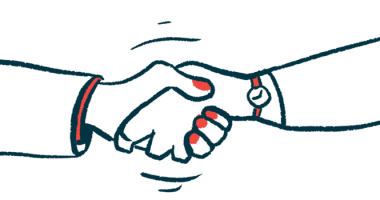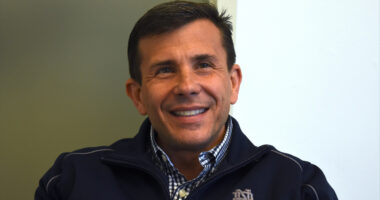Continuing partnership will aid in getting Fabry disease diagnosis
Centogene, Takeda extending diagnostic testing collaboration for disorders

Centogene has extended a collaboration deal with Takeda in which the two companies will continue to provide diagnostic services to patients with lysosomal storage disorders — which may help people with Fabry disease to get a correct diagnosis.
The partnership was initially established to improve patient access to fast and dependable diagnostic services for people with Fabry and other forms of lysosomal storage disorders, such as Gaucher disease and Hunter syndrome.
“Extending our longstanding partnership with Takeda highlights the continuing need to accelerate diagnoses for [lysosomal storage disorder] patients globally and the ability of Centogene to fulfill this vital service,” Ian Rentsch, Centogene’s chief commercial officer and general manager for pharma, said in a company press release.
Fabry is marked by an abnormal buildup of toxic materials in lysosomes, the cell’s recycling centers, that’s caused by inherited deficiencies in certain enzymes. Given its progressive nature, it’s important for clinicians to make a Fabry disease diagnosis as early as possible, so as to get treatment started.
Challenges of getting a correct Fabry disease diagnosis
Common Fabry symptoms include episodes of pain and burning and tingling in the hands and feet, often triggered by exercise, fever, fatigue, and stress. Clusters of small, dark spots on the skin that become larger and more abundant with age also are signs of Fabry.
Additionally, the disease is associated with damage to the kidneys and heart, which can worsen over time and has the potential to become life-threatening.
Research shows that conditions like Fabry, Gaucher, and Hunter syndrome are often misdiagnosed or underdiagnosed. Because people with these conditions often face considerable diagnostic delays, an earlier diagnosis that allows patients to begin treatment as soon as possible may help to ultimately improve health and quality of life.
Centogene offers several diagnostic approaches to lysosomal storage disorders, including genetic testing and so-called multiomics, or biological assessments that include data sets generated from large-scale analyses of genes, gene activity, epigenetics, proteins, and microbiology.
“Leveraging our targeted genomic and multiomic testing portfolio, we are uniquely positioned to deliver improved health outcomes for underserved patient communities, particularly in the rare disease sector,” Rentsch said.
According to Centogene, the company brings to the partnership its Biodatabank, which it calls “the world’s largest real-world data repository for rare and neurodegenerative diseases.” The Biodatabank contains information from more than 800,000 patients in nearly 120 countries, the company says. Its samples represent more than 2,500 diseases.
We are committed to teaming up with global players to deliver life-changing answers to rare and neurodegenerative disease patients around the world.
Analysis of stored blood samples, both dried and liquid, combined with clinical data can enable more accurate diagnoses and help inform clinical decisions.
The original partnership stretches back to 2015, when Centogene first teamed up with Shire Pharmaceuticals, which was acquired by Takeda in 2019. The collaboration also allowed access to diagnostic testing for rare genetic diseases.
A more recent collaboration was launched with Lifera to bring Centogene’s diagnostic technologies to patients in Saudi Arabia and to countries in the Gulf Cooperation Council region.
“We believe that great solutions require great collaboration,” said Kim Stratton, Centogene’s CEO. “From long-standing partners like Takeda to new partners like Lifera … in Saudi Arabia, we are committed to teaming up with global players to deliver life-changing answers to rare and neurodegenerative disease patients around the world.”
Takeda markets an enzyme replacement therapy called Replagal (agalsidase alfa), which is approved for Fabry patients in Canada and the U.K. but not in the U.S.







